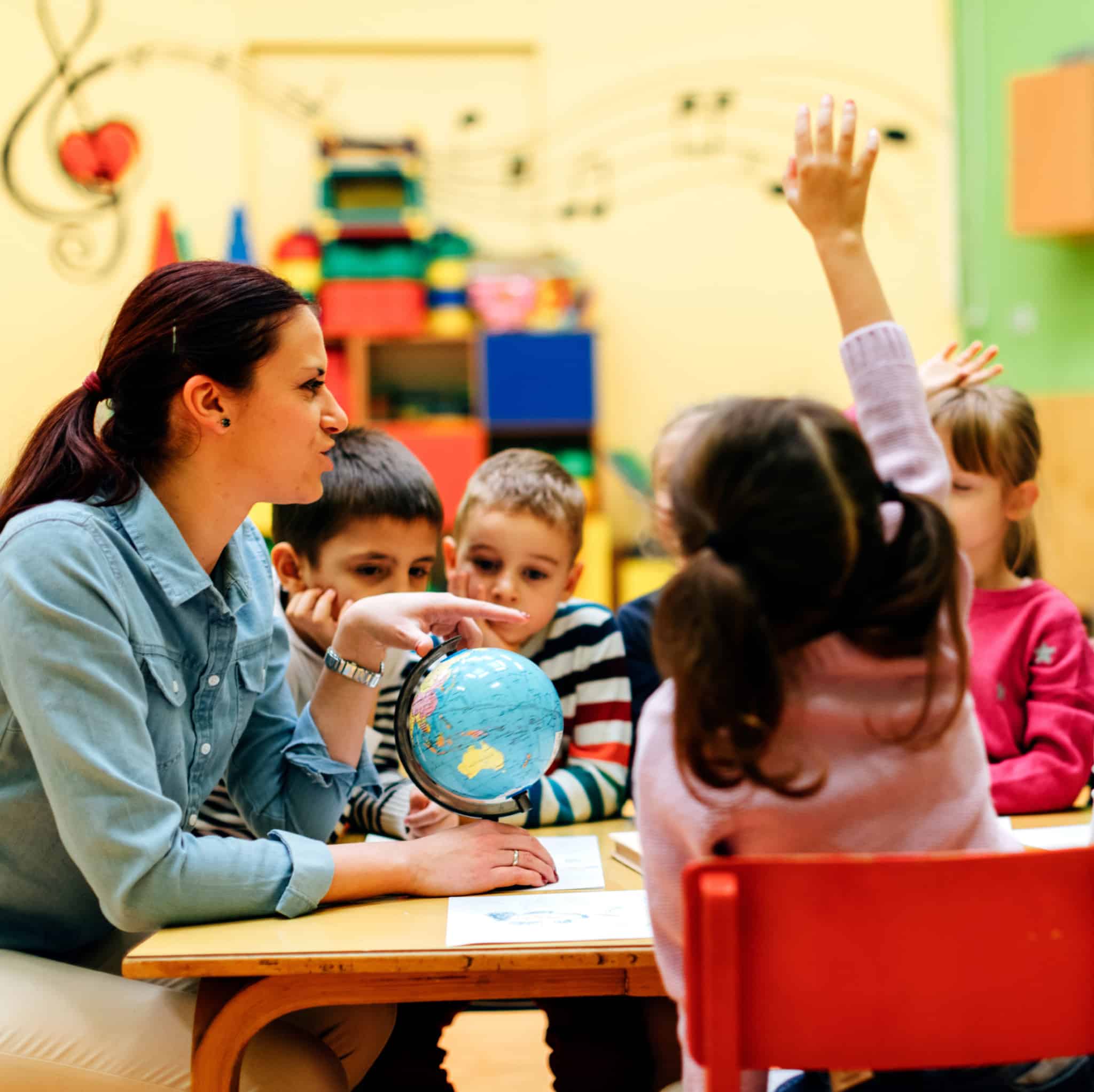Special Education Certificate
Hybrid

As a dedicated educator, you may often find yourself looking for resources that will help you effectively teach students with disabilities and help them learn successfully, whether in an inclusive environment or in a special education classroom.
The Special Education certificate promotes the mission of Bushnell University by fostering an attitude of service and recognizing the contribution of all learners for the betterment of the whole.
Credits 18*| Cost/Credit $755 | Completion 9 Months | Format Hybrid| Starts Every July
*Students who do not hold a teaching license will take one additional course
Graduate Programs
Certificate Programs
Contact
Carrie Gillies
Director of Online & Grad Admission
541-684-7259
cgillies@bushnell.edu
Ray Ricks, M.Ed.
Program Director, School of Education
541-684-7277
rricks@bushnell.edu
Why Choose Bushnell?
The Special Education Specialty endorsement program at Bushnell University equips educators with the skills and knowledge to support students with disabilities in inclusive and specialized settings. The program covers topics such as assessment and evaluation, behavior management, individualized education plans, and collaboration with families and professionals to meet the unique needs of each student.
Program Format
This program is offered in a hybrid format, with some coursework delivered fully online and others offered in the evening on the Bushnell campus. Cohorts will begin each summer session 2 (in July) and complete the curriculum together in one year. Candidates can also add a SPED endorsement within their Bachelor’s or Masters’s education program.
Courses
For full course descriptions, visit our academic catalog.
- Foundations of Special Education I
- Foundations of Special Education II
- Foundations of Special Education III
- Interventions for Accessibility and Functional Skills
- Assessment and Evaluation in Special Education
- Advanced Classroom and Behavior Management
- Special Education History and Current Issues
- Academic Instructional Supports and Universal Design for Learning
- Special Education Field Experience I
- Special Education Field Experience II
- Special Education Field Experience III
The curriculum is aligned with the Oregon Teacher Standards and Practices Commission (TSPC) and prepares graduates to incorporate safe and effective practices in physical education in both private and public K-12 schools.
Admissions Requirements
- A free application for admission
- Official transcripts showing completion of a bachelor’s degree from a regionally accredited four-year college or university with a minimum GPA of 3.0
- A statement of purpose 2-3 pages double spaced that clearly indicates career history, professional goals, and professional guiding principles
- Current resume
- One letter of recommendation that specifically addresses the academic ability, work performance and character of the applicant
- Two disposition assessments
- A personal interview with the admissions committee
- Applicants must hold a current teaching license
Cost of Attendance
Per Semester:
Housing & Food: $5,650
Books & Supplies: $55 per credit
Personal: $700
Transportation: $700
Tech Fee: $175
Questions?
Carrie Gillies
Director of Online & Grad Admission
541-684-7259
cgillies@bushnell.edu
Ray Ricks, M.Ed.
Program Director, School of Education
541-684-7277
rricks@bushnell.edu
FAQ's
- How much does the program cost?
Graduate certificates are offered at the same cost per credit as the Master of Arts in Teaching (MAT) program. Current tuition and fees are listed on our Graduation and Tuition page. Certificates range from 8-18 credits, depending on the chosen endorsement area. When making plans, prospective students should also consider expenses such as textbooks and a parking pass.
- How long does it take to complete the program?
Students can complete any of our certificate programs in just under one year.
- Can I work while doing this program?
Students who are currently teaching in the same subject as their endorsement program may be able to utilize their teaching position to fulfill their practicum requirements, and it would be feasible to fulfill professional responsibilities while in the program. However, if students are currently teaching a subject that is different than the certificate program, they will need to adjust their work schedule to complete their student teaching practicum.
- Is Bushnell accredited?
Yes. Our certificate programs are accredited through TSPC (Teacher Standards and Practices Commission).
Have other questions? Contact our admission counselor for education programs at 541-684-7201.
Program Objectives
Upon completion of the SPED Certificate, candidates:
• Understand the current issues surrounding special needs students and families
• Be culturally competent and integrate cultural responsiveness to all students and families
• Be able to identify a broad range of disabilities and provide an environment that promotes equal access and learning
• Practice and implement effective teaching strategies based on accepted philosophies and research
• Learn to collaborate and build partnerships within the school community, families, and other advocates
Clinical Practices
During school-based clinical practices, the candidate will work closely with a certified teacher, in their area of concentration, and will create a work sample with supervised support. Candidates will use a variety of research-based educational practices that reflect how students learn, are sensitive to individual differences, and address the needs of diverse populations.
Licensure Requirements
Requests to add an endorsement require an application and fee as well as other evidence to process. For more information on specific steps to add endorsements to teaching licenses, visit the TSCP website.
Testing
Candidates seeking a specialty endorsement are required to pass a content knowledge test mandated by the state of Oregon for teacher licensure.
Accreditation
The School of Education at Bushnell University is nationally accredited by the Association for Advancing Quality in Educator Preparation (AAQEP) and regionally accredited by the Northwest Commission on Colleges and Universities (NWCCU). Additionally, the university’s teaching licensure programs are approved by the Oregon Teacher Standards and Practices Commission (TSPC). To learn more, visit our Accreditation page.
Academic Catalog
Academic Calender
Tuition & Financial Aid
Military & Veteran Benefits
Pathways in Education Scholarship
The School of Education Faculty
Tammy Bovee, M.S. Jenee Cazares, M.A. Allyssa Goertzen, M.A. Brian Kaelin, Ed.D. Cindy Nees, M.Ed. Suzanne Price, M.Ed. Ray Ricks, M.Ed. Marilyn Williams, Ed.D.

